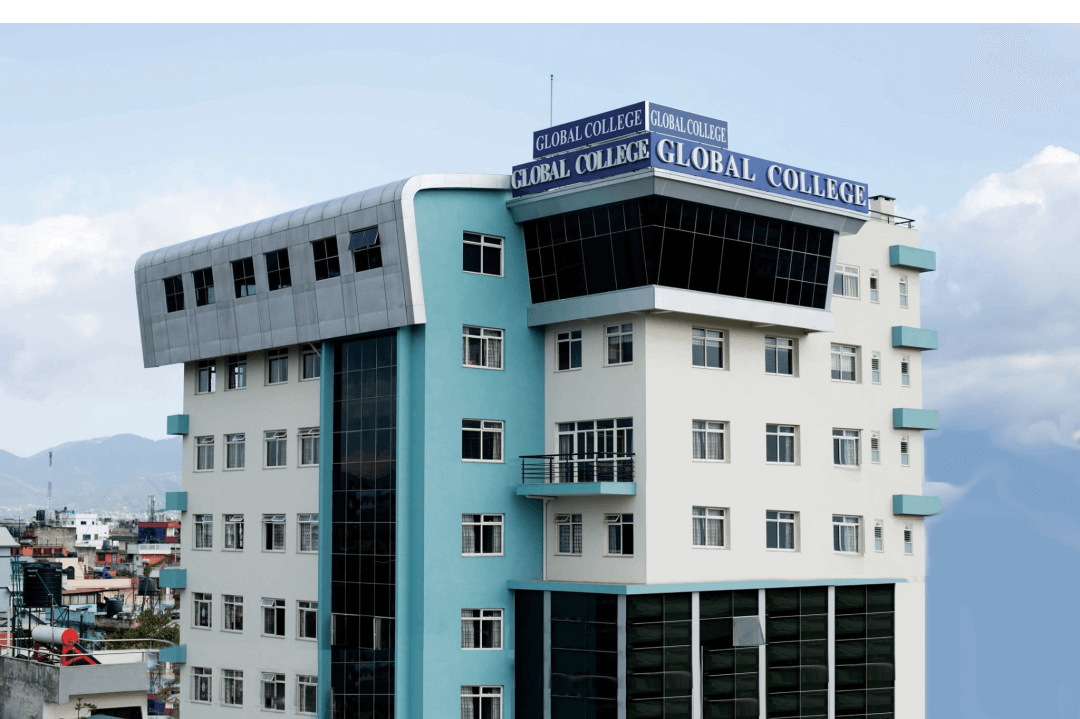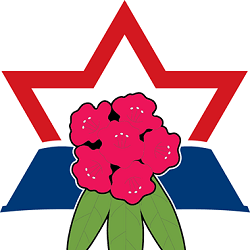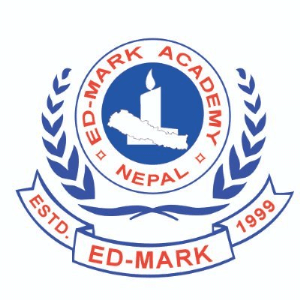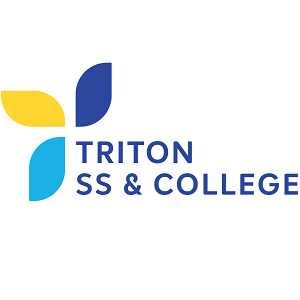Overview
Master of Business Studies (MBS) at Global College of Management (GCM), Kathmandu
Master of Business Studies (MBS) at Global College of Management (GCM), Mid-Baneshwor, Kathmandu, follows Tribhuvan University guidelines and runs for two academic years in four semesters. The program focuses on strategic thinking, analysis, and clear communication for managerial roles.
Admissions use the CMAT entrance under TU’s Faculty of Management, followed by a college process that reviews prior records and an interview.
You study in English with steady classroom routines, regular assessments, and access to library and computer resources. The tone on college values punctuality, honest work, and careful documentation.
The goal is simple: build habits that translate to reliable performance at work or further study. GCM runs the MBS program as part of its graduate offerings.

Introduction
MBS at GCM brings core management subjects together with specialization and a research dissertation. TU defines three academic components for MBS: core courses, specialization courses, and a dissertation. The four-semester structure supports a gradual shift from concepts to application, then to research and strategy.
Classes use short cases, mini-projects, and focused presentations. You practise reading financial statements, framing issues, comparing options, and writing clear notes that others can follow. The routine asks for weekly planning, revision logs, and timely submissions. These habits help you manage exam pacing and later workplace timelines.
Highlights
-
Affiliation: Tribhuvan University (TU), Faculty of Management
-
Duration and Structure: Two years, four semesters, with core + specialization + dissertation as per TU curriculum
-
Medium of Instruction: English
-
Location: Mid-Baneshwor, Kathmandu (GCM campus)
-
Entrance: CMAT under TU; college selection adds interview and academic review
-
Learning Support: Library, computer labs, study guidance, remedial sessions on request
-
Progression: Pathways to roles in finance, accounting, marketing, operations, and to research-oriented study
Curriculum Details
TU’s MBS curriculum lists semester-wise subjects in managerial economics, managerial communication, organizational behavior, marketing management, statistical methods, financial management, human resource management, operations management, business environment, and strategic management. Later semesters introduce specialization courses and a dissertation under faculty supervision.
Typical academic flow:
-
Semesters I–II: Foundation courses in marketing, economics, statistics, organizational behavior, and managerial communication.
-
Semesters III–IV: Advanced core such as strategic management and operations, plus specialization papers (e.g., accounting, finance, marketing, or general management) and a dissertation that meets Faculty of Management requirements.
GCM uses these TU syllabuses and sets internal schedules for unit coverage, tests, and presentations. Students receive corrected scripts with remarks, which helps track progress and plan revision.
Objectives
-
Build clear understanding of managerial decisions across finance, marketing, operations, and people management.
-
Strengthen quantitative reasoning, business writing, and presentation skills for professional settings.
-
Practise evidence-based thinking: define a problem, choose a method, show the calculation or logic, and state limits.
-
Encourage punctuality, clean records, and respect for academic rules.
-
Guide students towards a focused dissertation that uses credible sources and sound analysis in line with TU’s expectations.
Scope
Graduates move into roles where clarity, reliability, and steady analysis matter.
-
Corporate and SME roles: financial analysis, cost tracking, budgeting support, sales/channel coordination, procurement support, and operations planning.
-
Banks and financial institutions: branch operations support, credit appraisal assistance, and MIS reporting (as per each employer’s rules).
-
Public and development sector: documentation, data analysis, and project coordination roles that need accurate records and plain-language reporting.
-
Further study: MPhil or other master-level research tracks; professional certifications as per their independent criteria.
Learning Outcomes
A diligent student completing MBS at GCM should be able to:
-
Prepare and interpret core financial statements, ratio tables, and working capital snapshots; present short notes with evidence.
-
Analyse markets and cost structures to suggest practical pricing or product choices; state assumptions clearly.
-
Write concise emails, memos, and 3–6 page reports with headings, charts, and references.
-
Use spreadsheets for models and visual summaries; explain formulas and checks.
-
Lead or coordinate small teams with shared folders, file naming rules, and update logs.
-
Present a 10–12 minute talk that stays within slide and time limits and answers basic questions well.
-
Produce a dissertation proposal with a clear question, method outline, and realistic data plan consistent with TU guidance.
Skill Development Modules
Accounting and Finance Practice
-
Month-wise ledger checks, cash flow format drills, and budget templates.
-
Ratio dashboards and short variance notes for managers.
Quantitative and Decision Tools
-
Time-value and investment appraisal basics (within TU scope), statistical summaries, correlation, and index numbers.
Managerial Communication
-
Report frameworks with headings, tables, and figure captions.
-
Meeting minutes and action lists that others can follow.
Research and Dissertation Prep
-
Source evaluation, citation habits, and simple data plans that match TU guidelines on dissertation work.
Professional Conduct
-
Attendance, deadline management, and exam discipline.
-
Short reflections on fairness, confidentiality, and conflict of interest.
Teaching Methodology
Teaching at GCM keeps explanations clear and practice regular.
-
Concept sessions: Short lectures followed by worked examples that resemble past patterns.
-
Caselets: One-page scenarios that require a memo or short presentation.
-
Practice blocks: Timed sets with feedback; weak areas flagged early.
-
Projects: Small teams complete a scoped task—data collection, analysis, and a brief report.
-
Seminars: Talks that link current events to course ideas.
-
Remedial support: Focus sessions for topics many students find difficult.
-
Mock tests: Trials under exam timing to build pace and stamina.
Unit plans and assessment dates are shared on class groups or notice boards, so you always know the next two weeks of work.
Admission Requirements
GCM follows TU’s entrance and its own selection steps.
-
Eligibility: A bachelor’s degree in Management or a related field from TU or a recognised institution.
-
Entrance: CMAT under TU Faculty of Management.
-
College process: A short interview and a review of prior academic records.
-
Selection: Composite of entrance score, interview, and previous academic performance.
Preparation tips for applicants
-
Refresh accounting formats, basic finance maths, marketing concepts, and organizational behavior.
-
Practise quick reading and 5–7 line summaries of short passages.
-
Rehearse a two-minute self-introduction covering study history and goals.
-
Arrange transcripts, photos, and ID in a clean folder to avoid last-minute issues.
Career Opportunities
MBS graduates take up roles that reward accuracy and clear writing.
-
Accounts and finance: ledger reviews, reconciliations, budget assistance, audit support, and MIS notes.
-
Marketing and sales support: pricing sheets, product summaries, channel coordination, and event documentation.
-
Operations and admin: process documentation, inventory checks, vendor follow-ups, and schedule tracking.
-
Banking and services: frontline operations support and documentation roles as per employer guidelines.
-
Further study: research programs or sector-specific master’s; professional certifications under their own rules.
Managers look for punctuality, clean records, and notes that others can act on. The program encourages these habits every week.
Scholarships and Financial Aid
GCM provides merit- and need-based categories for MBS. Benefits vary by year and criteria. Students complete the application steps, meet deadlines, and keep documents accurate. College staff guide you on current categories and renewal conditions.
Why Choose This Course?
-
Structured learning: Four semesters under TU with clear progression from concepts to application to research.
-
Actionable feedback: Marked scripts and rubrics show what to fix next.
-
Daily skills: Data tables, short memos, and focused presentations become routine.
-
Support windows: Library hours, computer access, and remedial sessions help you close gaps.
-
Location and resources: Mid-Baneshwor campus with steady access to learning spaces.
Conclusion
MBS at GCM offers a clear path to managerial responsibility under Tribhuvan University. You learn to analyse numbers, read contexts, and explain choices in plain language. The college routine asks for timely work and careful notes. Students who plan weekly, revise on time, and request help when needed complete the program with confidence for work or further study.
FAQ
What is the affiliation for MBS at GCM?
The program runs under Tribhuvan University, Faculty of Management.
How long is the program and how is it structured?
Two years, four semesters with core courses, specialization, and a dissertation, as per TU curriculum.
Is CMAT required?
Yes. TU’s Faculty of Management requires CMAT for MBS admissions, followed by the college’s selection steps.
What are examples of core subjects?
Managerial economics, marketing management, organizational behavior, managerial communication, statistical methods, financial management, human resource management, operations management, business environment, and strategic management.
Does GCM run the MBS program?
Yes. GCM lists the MBS program among its graduate offerings and provides campus resources to support study.
Where can I read dissertation or process guidelines?
TU’s Faculty of Management publishes dissertation guidelines and related notices on its official site.






















